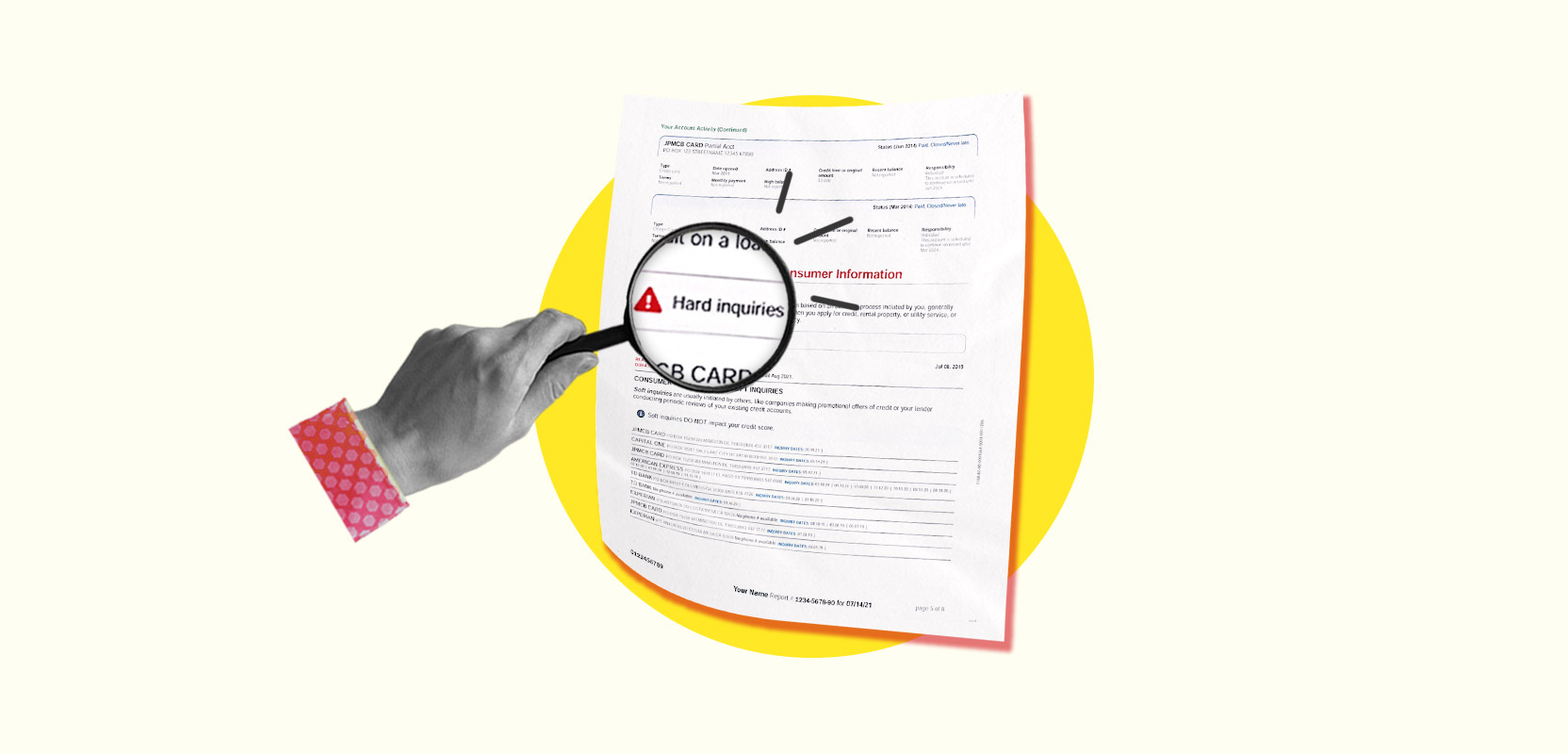Home>Finance>What Percentage Of Your Gross Salary Does The Consumer Financial Protection Bureau Suggest


Finance
What Percentage Of Your Gross Salary Does The Consumer Financial Protection Bureau Suggest
Published: December 23, 2023
Discover the recommended percentage of your gross salary for personal finance, as suggested by the Consumer Financial Protection Bureau.
(Many of the links in this article redirect to a specific reviewed product. Your purchase of these products through affiliate links helps to generate commission for LiveWell, at no extra cost. Learn more)
Table of Contents
- Introduction
- Understanding the Consumer Financial Protection Bureau (CFPB)
- Importance of Budgeting and Saving
- Guidelines from the Consumer Financial Protection Bureau (CFPB)
- Percentage Recommendations for Different Financial Goals
- Factors to Consider When Determining the Percentage of Salary to Allocate
- Seeking Professional Financial Advice
- Conclusion
Introduction
When it comes to managing our finances, it can be challenging to strike a balance between spending and saving. Creating a budget and sticking to it is essential for financial stability, but just how much of our income should be allocated towards different financial goals? The Consumer Financial Protection Bureau (CFPB) aims to provide guidelines and recommendations to help individuals make informed decisions about their money.
The CFPB is a government agency tasked with protecting consumers’ financial interests and promoting financial literacy. Their mission is to ensure that consumers have access to fair and transparent financial products and services. As part of their efforts, the CFPB offers valuable information and resources to help people navigate the complex world of personal finance.
Whether you’re saving for retirement, buying a home, paying off debt, or building an emergency fund, understanding how much of your gross salary should be allocated towards these goals is crucial. While everyone’s financial situation is unique, the CFPB provides general recommendations that can serve as a starting point for your financial planning.
In this article, we will explore the guidelines provided by the Consumer Financial Protection Bureau for determining the percentage of your gross salary that should be devoted to specific financial objectives. It’s important to keep in mind that these recommendations can be adjusted based on individual circumstances and financial priorities.
By following the CFPB’s guidelines and adapting them to your own financial situation, you can develop a comprehensive financial plan that aligns with your goals and helps you achieve long-term financial success.
Understanding the Consumer Financial Protection Bureau (CFPB)
The Consumer Financial Protection Bureau (CFPB) is a governmental agency established under the Dodd-Frank Wall Street Reform and Consumer Protection Act in 2010. The primary purpose of the CFPB is to protect consumers’ financial interests and promote fairness and transparency in the financial marketplace.
Since its inception, the CFPB has played a pivotal role in safeguarding consumers from unfair financial practices by enforcing laws and regulations pertaining to credit cards, mortgages, student loans, and other financial products and services. The bureau also provides educational resources and tools to help consumers make well-informed financial decisions.
The CFPB operates under the leadership of a director appointed by the President of the United States and is funded by the Federal Reserve. Its authority extends to both large banks and smaller financial institutions, ensuring that consumers are protected across the board.
Through its research and enforcement efforts, the CFPB assesses potential risks and identifies areas where consumers may be vulnerable to deceptive practices or harmful financial products. The bureau has the authority to take enforcement actions against financial institutions that violate consumer protection laws, in addition to providing redress to affected consumers.
Furthermore, the CFPB promotes financial education and literacy to empower individuals to make informed decisions about their finances. It provides a wealth of resources on topics such as budgeting, saving, credit, and mortgage borrowing, helping consumers gain the knowledge and skills necessary to navigate complex financial situations.
Overall, the CFPB serves as a critical advocate for consumers, working to establish fair and transparent financial markets that protect the interests of individuals and families. By understanding the role and responsibilities of the CFPB, consumers can take advantage of the resources and protections available to them and make more informed financial choices.
Importance of Budgeting and Saving
Budgeting and saving are fundamental pillars of sound financial management. They play a crucial role in maintaining financial stability, preparing for the future, and achieving financial goals. Here are some key reasons why budgeting and saving are essential:
- Control over your finances: Budgeting allows you to have a clear picture of your income and expenses. It helps you track where your money is going, identify areas of overspending, and make necessary adjustments. By having control over your finances, you can make informed decisions about how to allocate your resources.
- Build an emergency fund: Life is unpredictable, and unexpected expenses can arise at any time. Having an emergency fund provides a financial safety net to cover unforeseen circumstances, such as a medical emergency or car repairs. Saving a portion of your income each month towards an emergency fund ensures you are prepared for the unexpected and avoids the need for taking on high-interest debt.
- Achieve long-term goals: Budgeting and saving are essential for reaching long-term financial goals, such as buying a house, funding education, or retirement. By consistently setting aside a portion of your income, you can make progress towards these goals over time. Saving regularly and investing wisely can help grow your wealth and provide financial security in the future.
- Reduce financial stress: Living paycheck to paycheck can be incredibly stressful and leave you vulnerable to financial setbacks. Budgeting and saving give you greater financial resilience, allowing you to weather unexpected expenses or deal with periods of reduced income. Knowing you have a safety net and a plan in place can provide peace of mind and reduce the stress associated with financial uncertainties.
- Make informed spending decisions: Creating and sticking to a budget helps foster mindful spending habits. It encourages you to prioritize your financial goals and make conscious choices about where your money goes. By distinguishing between wants and needs, you can make more informed decisions about how to allocate your resources and avoid unnecessary debt.
- Financial freedom: When you have control over your finances and a solid savings plan, you gain financial freedom. You can choose to pursue opportunities, take risks, and make decisions that align with your long-term goals. Financial freedom allows you to live life on your terms and provides a sense of empowerment and security.
By budgeting effectively and saving regularly, you can take charge of your financial future and create a solid foundation for long-term financial success.
Guidelines from the Consumer Financial Protection Bureau (CFPB)
The Consumer Financial Protection Bureau (CFPB) provides general guidelines to help individuals determine the percentage of their gross salary that should be allocated towards various financial goals. While these recommendations may vary depending on personal circumstances, they serve as a valuable starting point for financial planning.
1. Housing: The CFPB suggests that no more than 30% of your gross income should be allocated towards housing expenses, including mortgage or rent payments, property taxes, and homeowners or renter’s insurance. This guideline helps ensure that housing costs remain within a manageable range and leave room for other financial obligations.
2. Debt: Ideally, your debt payments, including credit card bills, student loans, and car loans, should not exceed 20% of your gross income. Keeping your debt-to-income ratio in check allows you to maintain a healthy financial outlook and avoid the burden of excessive debt.
3. Savings: The CFPB recommends saving at least 20% of your gross income towards your savings goals. This includes building an emergency fund, contributing to retirement accounts, and saving for long-term goals such as education or a down payment on a house. By prioritizing savings, you can establish financial security and work towards achieving your aspirations.
4. Insurance: The CFPB advises budgeting around 5% to 10% of your gross income for insurance premiums, including health insurance, life insurance, and disability insurance. Adequate insurance coverage plays a vital role in protecting you and your loved ones from unexpected financial burdens in case of illness, accidents, or other adverse events.
5. Other Expenses: The remaining portion of your income, after accounting for housing, debt, savings, and insurance, can be allocated towards day-to-day expenses such as groceries, transportation, utilities, and entertainment. It is important to strike a balance between enjoying your lifestyle and managing these expenses wisely.
It’s important to note that these guidelines provide a general framework and may need to be adapted based on individual circumstances. Factors such as location, family size, and financial obligations may influence the percentage allocation for different categories. Additionally, these percentages can serve as goals to work towards if you are not already meeting them.
By following these guidelines and making adjustments as necessary, you can create a budget that aligns with your financial goals and helps you make informed decisions about your money.
Percentage Recommendations for Different Financial Goals
When determining the percentage of your gross salary to allocate towards different financial goals, it’s important to consider your unique circumstances and priorities. However, the following percentage recommendations from the Consumer Financial Protection Bureau (CFPB) can serve as a helpful starting point:
- Emergency Fund: Building an emergency fund should be a top priority. The CFPB suggests saving at least 10% to 15% of your gross income for this purpose. An emergency fund acts as a financial safety net to cover unexpected expenses or income disruptions.
- Retirement Savings: Planning for retirement is crucial, and the CFPB recommends allocating 10% to 15% of your gross income towards retirement savings. This includes contributions to employer-sponsored retirement plans like 401(k)s, individual retirement accounts (IRAs), or other retirement savings vehicles.
- Debt Repayment: If you have outstanding debts, allocating a significant portion of your income towards debt repayment is important. The CFPB advises dedicating 15% to 20% of your gross income to paying off debts, such as credit card debt, student loans, or car loans. Reducing your debt load contributes to overall financial health.
- Long-Term Savings Goals: Saving for long-term goals like buying a home or funding education requires careful planning. The CFPB recommends allocating 10% to 15% of your gross income towards these savings goals. This allows you to accumulate funds steadily over time and make progress towards your aspirations.
- Short-Term Savings/Discretionary Expenses: The remaining portion of your income can be allocated towards day-to-day expenses and discretionary spending. This includes groceries, transportation, entertainment, and other miscellaneous expenses. The CFPB suggests allocating around 25% to 35% of your gross income for this category.
It’s important to note that these percentage recommendations are general guidelines and should be adjusted based on your personal financial situation. Factors such as your age, income level, financial obligations, and future plans may influence the percentage allocation for each category. Additionally, if you have specific financial goals or commitments, you may need to adjust the percentages accordingly.
Remember, financial planning is a continuous process, and it’s important to regularly review and update your budget as your circumstances change. By following these percentage recommendations and making any necessary adjustments, you can ensure that your financial resources are allocated effectively to meet your goals and aspirations.
Factors to Consider When Determining the Percentage of Salary to Allocate
While the Consumer Financial Protection Bureau (CFPB) provides percentage recommendations for allocating your salary towards different financial goals, it’s crucial to consider several factors that can influence the appropriate allocation for your unique circumstances:
- Income Level: Your income level plays a significant role in determining how much of your salary you can allocate towards various financial goals. Higher-income individuals may have more flexibility to allocate a larger percentage towards savings and investments.
- Financial Priorities: Consider your financial priorities and goals. If you have outstanding debts, allocating a higher percentage towards debt repayment may be necessary. Alternatively, if building an emergency fund or saving for a down payment is your priority, you may need to adjust your allocation accordingly.
- Family Size and Responsibilities: If you have dependents or family members to support, it’s essential to consider their financial needs when determining your salary allocation. This may influence the percentage you allocate towards housing, education, or other family-related expenses.
- Cost of Living: The cost of living can vary greatly depending on your location. If you live in an area with a high cost of living, you may need to allocate a larger percentage towards housing and other essential expenses, leaving less for savings or discretionary spending.
- Debt Obligations: If you have significant debt obligations, such as student loans or credit card debt, allocating a higher percentage towards debt repayment can help reduce your debt burden and improve your financial situation.
- Employer Benefits: Take into account any employer benefits or retirement plans offered. If your employer provides a matching contribution to your retirement savings, you may want to allocate a higher percentage towards your retirement accounts to take full advantage of this benefit.
- Future Financial Goals: Consider any upcoming financial goals or milestones you want to achieve. If you’re planning to start a business, pursue further education, or save for a large purchase, you may need to adjust your allocation and increase your savings percentage accordingly.
- Flexibility and Adaptability: Remember that these percentage recommendations are not set in stone. Be open to adjusting the allocation percentages as your circumstances change. Regularly review your budget and make necessary adjustments based on your evolving financial goals and priorities.
Ultimately, determining the percentage of your salary to allocate towards different financial goals requires careful consideration of these factors. Everyone’s financial situation is unique, so it’s essential to tailor your allocation percentages to align with your specific circumstances and aspirations. Regularly reassess your financial goals and adjust your allocation accordingly to ensure continued progress towards financial well-being.
Seeking Professional Financial Advice
While the guidelines and recommendations provided by the Consumer Financial Protection Bureau (CFPB) can be a valuable starting point, seeking professional financial advice is a smart decision that can greatly benefit your financial journey. Here’s why:
Expertise and Knowledge: Financial advisors possess specialized knowledge and expertise in various aspects of personal finance. They can provide insights and guidance tailored to your specific situation, taking into account factors such as your income, goals, risk tolerance, and time horizon. Their expertise can help you navigate complex financial decisions and optimize your financial resources.
Objective Perspective: A financial advisor provides an objective perspective on your financial situation. They can help you uncover blind spots, identify potential risks, and offer alternative strategies that you may not have considered. Their unbiased advice can prevent emotional decision-making and guide you towards the most rational choices for your financial well-being.
Comprehensive Financial Planning: Financial advisors can assist you in developing a comprehensive financial plan that integrates all aspects of your financial life. They can help you set realistic and achievable goals, create a budget, manage your investments, plan for retirement, and provide guidance on tax strategies. A well-designed financial plan provides a roadmap for your financial future and ensures that you are making informed decisions every step of the way.
Market Insights and Investment Management: Financial advisors stay updated on market trends, economic indicators, and investment opportunities. They have access to research and tools that can help you make informed investment decisions aligned with your risk tolerance and goals. By leveraging their knowledge, they can guide you in constructing a well-diversified investment portfolio that maximizes your potential for growth while minimizing risk.
Accountability and Discipline: Working with a financial advisor provides accountability and discipline to stay committed to your financial goals. They can help you stay on track, provide regular check-ins, and offer support during challenging times. They can also help you adjust your financial plan as circumstances change, ensuring that you are always working towards your desired outcome.
Financial Education and Empowerment: A financial advisor can educate you about personal finance concepts and strategies, empowering you to make informed decisions and take control of your financial future. They can answer your questions, demystify complex financial concepts, and provide resources and tools to enhance your financial literacy. This knowledge empowers you to make sound financial choices even outside of the advisory relationship.
When seeking a financial advisor, it’s important to choose a qualified and trustworthy professional. Look for advisors who hold relevant certifications, have a good reputation, and are transparent about their fees and services. Meeting with multiple advisors and assessing their approach can help you find the right fit for your specific financial needs.
Incorporating the expertise of a financial advisor into your financial journey can provide invaluable support and guidance, helping you make the most of your financial resources and achieve your long-term goals. Whether you’re just starting or are well on your way, a financial advisor can be a valuable partner on your path to financial success.
Conclusion
Managing your finances effectively is crucial for achieving financial stability and securing your future. The Consumer Financial Protection Bureau (CFPB) provides valuable guidelines and recommendations for determining the percentage of your gross salary to allocate towards different financial goals. However, it’s important to remember that these recommendations serve as a starting point and should be adjusted based on your individual circumstances and priorities.
Budgeting and saving are fundamental pillars of financial management. By creating a budget and sticking to it, you can gain control over your finances and make informed decisions about how to allocate your resources. Saving consistently and building an emergency fund provides financial security, while also allowing you to work towards long-term goals such as retirement, homeownership, or education.
While the CFPB offers general guidelines, seeking professional financial advice can provide valuable expertise, objective perspective, and customized guidance tailored to your unique situation. A financial advisor can help you develop a comprehensive financial plan, manage your investments, and navigate complex financial decisions. Their knowledge, accountability, and support can significantly enhance your financial well-being.
Remember, financial planning is an ongoing process. Regularly review your goals, adjust your budget, and reassess your priorities as your circumstances change. By taking proactive steps towards financial literacy and seeking professional advice when needed, you can set yourself on a path to financial success and achieve your dreams.
Whether you choose to follow the CFPB’s guidelines or work with a financial advisor, the most important thing is to take action and take control of your finances. By implementing sound financial strategies, you can build a solid foundation for your future, reduce financial stress, and confidently navigate the ever-changing landscape of personal finance.














